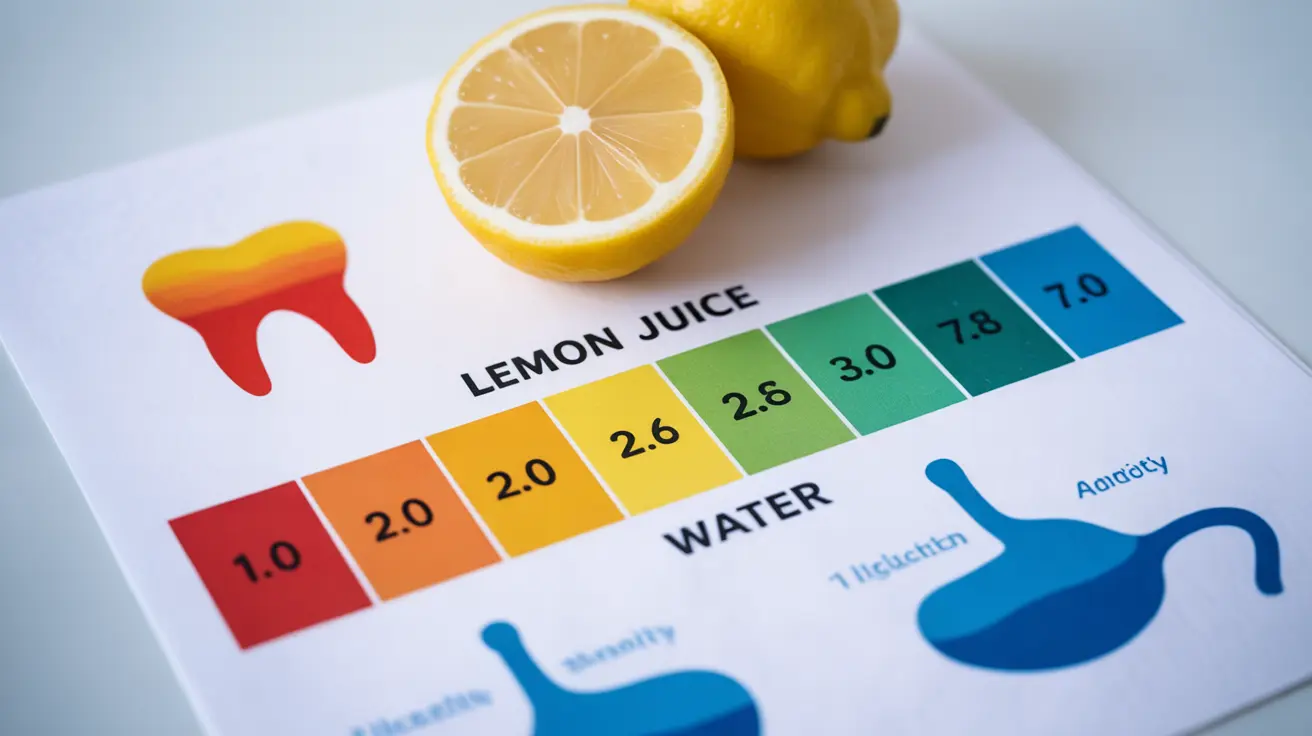The pH level of lemon juice and its effects on human health have long been subjects of interest and debate. While lemon juice is known for its strong acidic taste, its interaction with the human body is more complex than many people realize. Understanding the true nature of lemon juice's pH and its impact on various aspects of health can help you make informed decisions about its consumption.
In this comprehensive guide, we'll explore the science behind lemon juice's acidity, its effects on body pH, and its various health implications. We'll separate fact from fiction and provide evidence-based insights about this popular citrus juice.
The Science of Lemon Juice pH
Lemon juice is highly acidic, with a pH typically ranging between 2.0 and 2.6. This places it firmly in the acidic category of the pH scale, which runs from 0 (most acidic) to 14 (most alkaline). For comparison, pure water has a neutral pH of 7.0, making lemon juice significantly more acidic than water.
The high acidity of lemon juice comes from its concentration of citric acid, which gives lemons their characteristic sour taste. This natural acid comprises about 5-8% of lemon juice's content.
Body pH and Lemon Juice Consumption
Despite its acidic nature, lemon juice's relationship with body pH is more nuanced than you might expect. The human body maintains a strictly regulated blood pH between 7.35 and 7.45 through various buffering systems. This tight control means that consuming acidic or alkaline foods has minimal impact on blood pH.
When you consume lemon juice, your body processes it through complex metabolic pathways. During this process, the citric acid is broken down and metabolized, ultimately having a mild alkalizing effect on urine pH, though not on blood pH.
Oral Health Considerations
The high acidity of lemon juice can potentially affect dental health. Regular exposure to acidic substances can gradually erode tooth enamel, the protective outer layer of teeth. This process, known as dental erosion, can make teeth more sensitive and susceptible to decay.
Protecting Your Teeth
- Use a straw to reduce direct contact with teeth
- Rinse your mouth with water afterward
- Wait at least 30 minutes before brushing teeth
- Consider diluting lemon juice with water
Digestive System Effects
Despite its high acidity, some people find that lemon juice can actually help with digestive issues, including acid reflux. This seemingly paradoxical effect may be due to lemon juice stimulating the production of digestive enzymes and supporting healthy digestion patterns.
However, individual responses can vary significantly, and some people might experience increased symptoms when consuming acidic foods like lemon juice. It's important to pay attention to your body's specific reactions.
Frequently Asked Questions
What is the pH level of lemon juice and how acidic is it compared to water?
Lemon juice has a pH level between 2.0 and 2.6, making it significantly more acidic than water, which has a neutral pH of 7.0. This high acidity is due to its concentrated citric acid content.
Does drinking lemon juice change the pH of your blood or body?
No, drinking lemon juice does not significantly change your blood pH. The body maintains strict control over blood pH through various buffering systems, keeping it between 7.35 and 7.45 regardless of food consumption.
Why is lemon juice said to alkalize urine but not the whole body?
When lemon juice is metabolized, its citric acid compounds are broken down through various metabolic processes. This can result in a mild alkalizing effect on urine pH, but it doesn't affect the body's overall pH balance, which is tightly regulated.
Can lemon juice help with acid reflux despite its acidic pH?
Some people find that lemon juice helps with acid reflux symptoms, possibly due to its ability to stimulate digestive enzyme production. However, responses vary individually, and some people may experience worsened symptoms.
How does lemon juice affect oral health given its acidity?
Lemon juice's high acidity can potentially erode tooth enamel over time. To protect oral health, it's recommended to use a straw, rinse with water after consumption, and wait before brushing teeth to allow the enamel to reharden.




